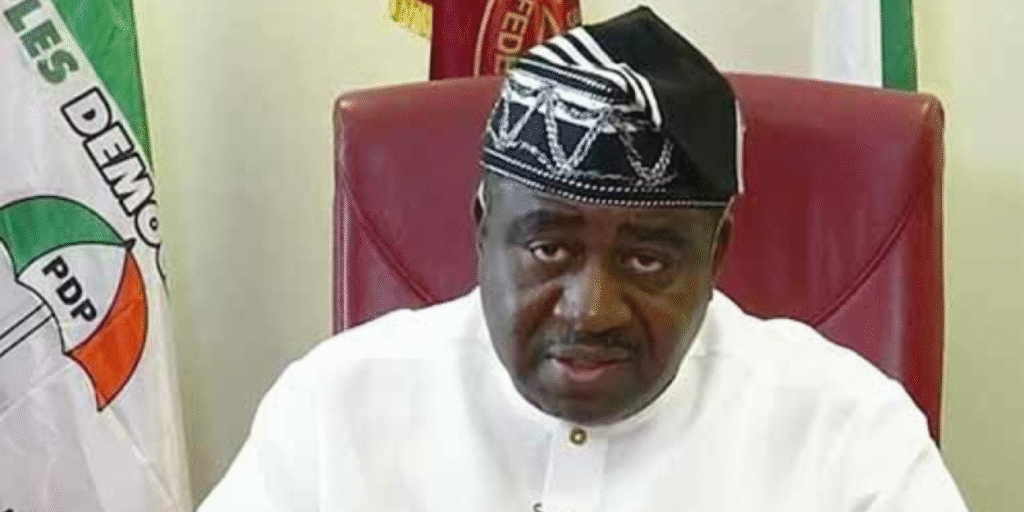
Justice Peter Lifu of the Federal High Court in Maitama, Abuja, has postponed ruling on the no-case submission filed by former Benue State Governor, Gabriel Suswam, and his former Commissioner for Finance, Omodachi Okolobia. The court is now set to deliver its decision on July 23, 2025.
The two defendants are facing an amended 11-count charge, brought against them by the Economic and Financial Crimes Commission (EFCC), which includes allegations of criminal breach of trust and money laundering. At the center of the trial is the alleged misappropriation of ₦3.1 billion said to be proceeds from the sale of Benue State’s shares in the Benue Investment and Property Company Limited (BIPC), facilitated through Elixir Securities Limited and Elixir Investment Partners Limited.
At Friday’s session, Suswam’s lawyer, Chenelu Ogbozor, and Paul Erokoro (SAN), counsel to Okolobia, informed the court that they had filed a no-case submission dated May 28, 2025. This motion was brought pursuant to Sections 302 and 303 of the Administration of Criminal Justice Act (ACJA), 2015.
They argued that the prosecution failed to present substantial evidence linking their clients to the alleged offenses and urged the court to uphold their application and acquit the accused. Their legal submissions were backed by a written address submitted to the court on July 10, 2025.
In a swift response, EFCC’s lead counsel, Rotimi Jacobs (SAN), disagreed with the application. He referenced his written reply filed earlier in July, in which he contended that the evidence already tendered in court is sufficient to proceed with a full trial. He urged the court to reject the no-case submission and allow the prosecution to prove its case in detail.
Justice Lifu, after hearing from both sides, adjourned proceedings until July 23, when he is expected to deliver his ruling on whether the defendants have a case to answer.
The case, which began in 2015, has lingered for nearly a decade, hampered by procedural delays, changes in legal representation, and several amendments to the charges. The EFCC accuses Suswam and Okolobia of illegally diverting funds from the sale of government assets. These funds, according to investigators, were moved through financial intermediaries allegedly connected to the accused.
The anti-corruption agency maintains that its case is supported by strong financial documentation, tracing the movement of the funds to accounts and entities linked to the defendants. The prosecution insists that the transactions violate multiple provisions of the Money Laundering (Prohibition) Act.
Suswam, who governed Benue State from 2007 to 2015, has repeatedly denied any wrongdoing. He has argued that the transactions were lawful and that he acted in the best interest of the state during his tenure.
As the July 23 ruling approaches, attention is focused on whether the judge will find merit in the defense’s claim that the prosecution failed to prove its case—or whether the court will direct the defendants to open their defense and proceed with trial.
The ruling is critical, not only because of the high-profile nature of the case but also due to its potential implications for ongoing anti-corruption efforts in Nigeria. A dismissal would bring an end to nearly ten years of legal battles for the former governor and his associate, while a rejection of the no-case submission would open the door for a full trial.
Observers and legal analysts alike are watching closely, as the decision could set a significant precedent for how long-standing corruption cases are handled by Nigerian courts.
Stay updated with Chronicles Reporter by joining our WhatsApp channel:
👉 https://whatsapp.com/channel/0029VabITrvEAKW7DSkTfP0J